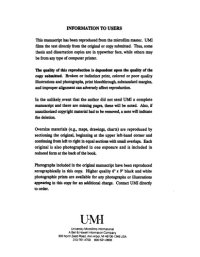
Ebook: Sexual politics, alterity and the search for signifiers in Boccaccio’s "Decameron"
Author: Jean Catherine Del Santo
- Tags: Social sciences, Language literature and linguistics, Boccaccio Giovanni, Italy
- Year: 1994
- Publisher: Indiana University
- Language: English
- pdf
Until the appearance of Giovanni Boccaccio's Decameron, no work in the corpus of Italian literature had treated the dynamics of the relationship between the sexes to any degree of thoroughness or realism. The lady-lover courtship in medieval lyric production and in the epic romance tradition offered a one-dimensional portrait of women. Elsewhere, woman was relegated to the role of symbol, either Eve or Mary: temptresses and sirens, whose sexuality was considered an insurmountable obstacle to man's earthly happiness and eternal salvation, or impossibly virtuous, idealized figures. The presentation of multi-dimensional heroines is, therefore, a concept that makes its first appearance in Italian literature in Boccaccio's Decameron.
Critics of the Decameron have tended to dismiss or overlook the treatment of women in an effort to move on to structural and allegorical explications. In doing so, scholars have ignored Boccaccio's incredible versatility in adding a dimensionality to female characters which had previously been lacking throughout the gamut of medieval Italian literature.
It is the intent of this dissertation, therefore, to examine the role of women in the Decameron in the light of poststructuralist feminism, with the goal of offering an alternative reading to Boccaccio's most important work. The discussion focuses on the dynamic of gender relationships, the author's emerging concept of womanhood and the multidimensional portrayal of female characters within the brigata and the tales.
The first part of this study is devoted to a discussion of sexual politics in the Decameron. In the first chapter, the collocation of sexual power is treated. Through an examination of the ten tales of Day III and other tangential stories which focus on gender dynamics, the inherent link between social authority and sexual power in Boccaccio's world is demonstrated. The second chapter of the first part includes a discussion of the derivation of sexual authority through eloquence, intelligence and social standing.
The second part of this dissertation provides an examination of the role of alterity in the Decameron and presents the theory that Boccaccio intends his work, among other things, as a search for a female signifying economy. In the first section, the concept of alterity is discussed in light of the Proemio, the Author's Introduction, the cornice and selected tales. The second section is dedicated to an examination of a reading of the work as the formulation of a female master narrative, in which Boccaccio's presentation of the role of women in society, and their opportunities and restrictions within the context of the patriarchy results in the intellection of a political, social and moral code.
Critics of the Decameron have tended to dismiss or overlook the treatment of women in an effort to move on to structural and allegorical explications. In doing so, scholars have ignored Boccaccio's incredible versatility in adding a dimensionality to female characters which had previously been lacking throughout the gamut of medieval Italian literature.
It is the intent of this dissertation, therefore, to examine the role of women in the Decameron in the light of poststructuralist feminism, with the goal of offering an alternative reading to Boccaccio's most important work. The discussion focuses on the dynamic of gender relationships, the author's emerging concept of womanhood and the multidimensional portrayal of female characters within the brigata and the tales.
The first part of this study is devoted to a discussion of sexual politics in the Decameron. In the first chapter, the collocation of sexual power is treated. Through an examination of the ten tales of Day III and other tangential stories which focus on gender dynamics, the inherent link between social authority and sexual power in Boccaccio's world is demonstrated. The second chapter of the first part includes a discussion of the derivation of sexual authority through eloquence, intelligence and social standing.
The second part of this dissertation provides an examination of the role of alterity in the Decameron and presents the theory that Boccaccio intends his work, among other things, as a search for a female signifying economy. In the first section, the concept of alterity is discussed in light of the Proemio, the Author's Introduction, the cornice and selected tales. The second section is dedicated to an examination of a reading of the work as the formulation of a female master narrative, in which Boccaccio's presentation of the role of women in society, and their opportunities and restrictions within the context of the patriarchy results in the intellection of a political, social and moral code.
Download the book Sexual politics, alterity and the search for signifiers in Boccaccio’s "Decameron" for free or read online
Continue reading on any device:

Last viewed books
Related books
{related-news}
Comments (0)